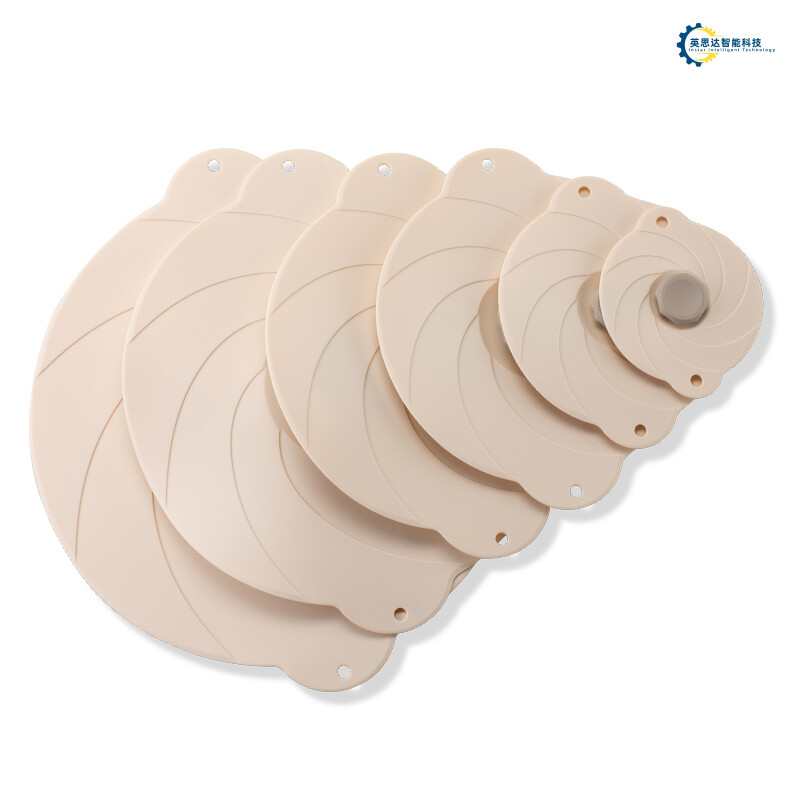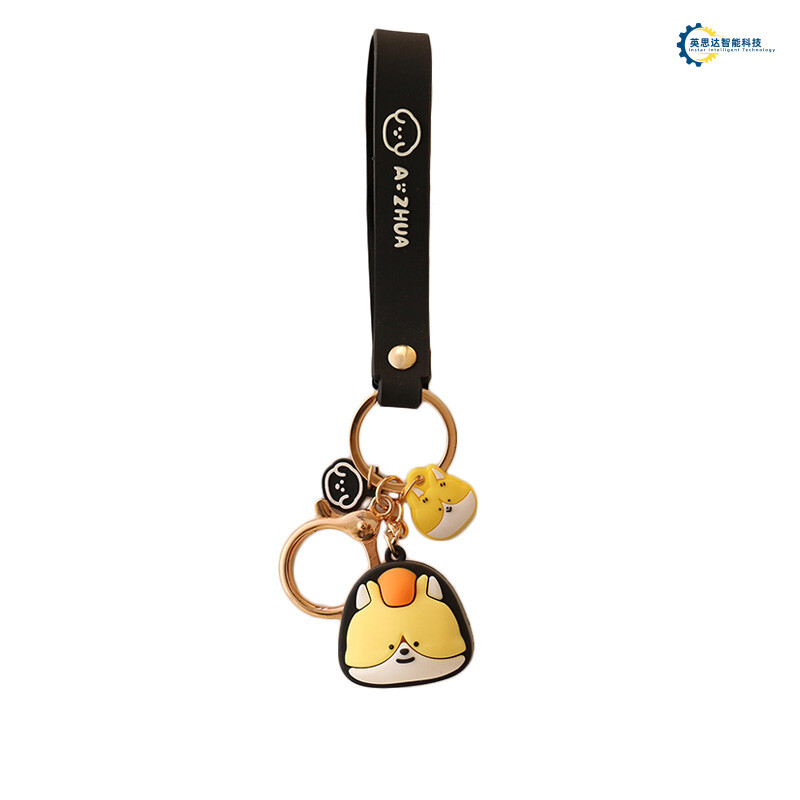Key Takeaways
Let’s cut to the chase: dispensing machine manufacturers aren’t magicians, but they do need a bag of tricks to keep their gadgets from turning into expensive paperweights. Here’s the lowdown on what separates the heroes from the zeros in this game:
- Precision valves are the unsung heroes—think of them as the machine’s “heartbeat.” If they hiccup, your whole operation starts doing the cha-cha slide.
- 24/7 technical support isn’t just a fancy slogan—it’s the difference between a midnight meltdown and a “no big deal” story for the break room.
- 1-year warranties are like a manufacturer’s “pinky promise.” If they’re not willing to bet on their own gear, why should you?
| Material | Durability Quirk |
|---|---|
| Aluminum | Laughs at rust like it’s a dad joke |
| Cheap plastics | Cracks under pressure (literally) |
Oh, and aluminum? It’s basically the superhero of metals—lightweight, corrosion-resistant, and tougher than a two-dollar steak. Meanwhile, manufacturers with industry experience are like that friend who’s seen everything and still knows how to fix your Wi-Fi.
Bottom line: If a manufacturer’s service agreements sound vaguer than a horoscope, run. Long-term stability isn’t built on wishful thinking—it’s built on valves that don’t quit, metals that don’t rust, and warranties that don’t make you side-eye your lawyer.

Core Components Ensuring Dispensing Machine Durability
If dispensing machines were rock bands, precision valves would be the lead singer—because if they’re off-key, the whole show falls apart. These tiny maestros control the flow of liquids with the accuracy of a cat judging your interior decor choices. A faulty valve isn’t just a hiccup; it’s the equivalent of a rockstar throwing a mic into the crowd mid-concert.
“A valve that leaks is like a toddler with a juice box—chaos in motion.”
– Anonymous Maintenance Technician
Then there’s the aluminum build, the unsung roadie fighting corrosion like it’s a rogue groupie trying to storm the stage. Aluminum doesn’t just shrug off rust; it laughs in the face of chemical spills, humidity, and that one intern who “accidentally” uses cleaning vinegar instead of lubricant.
Pro tip: If your machine’s parts look like they’ve been buried in a swamp, you’ve probably skipped the corrosion-resistant memo.
Durability isn’t just about surviving the apocalypse—it’s about consistency. Think of high-grade seals and O-rings as the bouncers at the club, keeping unwanted leaks and drips out of the VIP section. Combine these with motors that hum smoother than a jazz saxophonist, and you’ve got a machine that outlasts your gym membership resolutions.
Oh, and warranties? They’re not just paperwork. A 1-year warranty is the manufacturer’s way of saying, “We bet our coffee budget this thing won’t break.” But remember: even the best components can’t fix “user error” (looking at you, chocolate syrup dispenser hackers).
Now, let’s talk about why material choice is next-level important—because duct tape and hope aren’t on the approved parts list.
Why Material Choice Defines Equipment Longevity
Let’s face it: a dispensing machine built with the structural integrity of a soggy sandwich won’t last longer than a snowman in July. Material choice isn’t just about looking shiny—it’s the difference between a machine that purrs like a kitten and one that coughs like a chainsmoker at a karaoke bar. Imagine a valve made of chocolate. Delicious? Absolutely. Functional? Only until someone sneezes. That’s why top dispensing machine manufacturers opt for corrosion-resistant alloys like aluminum—the superhero of metals. It laughs in the face of rust, scoffs at chemical spills, and moonwalks past wear-and-tear like it’s 1985.
Cheap materials? They’re the “hold my beer” of engineering. Plastic parts might save pennies upfront, but they’ll crumble faster than a cookie in a toddler’s fist. Meanwhile, aluminum builds flex like yoga instructors, absorbing stress without cracking under pressure. And let’s not forget thermal stability—because nobody wants their machine warping like a vinyl record left on a radiator. Sure, you could ignore material specs, but then you’ll spend more time fixing leaks than a plumber in a haunted house.
Next up: warranties (spoiler: no amount of duct tape fixes a lemon). But that’s a story for later…
24/7 Technical Support’s Role in Reliability
Imagine your dispensing machine throwing a tantrum at 2 a.m., sputtering syrup like a caffeinated octopus. Without 24/7 technical support, you’d be stuck negotiating with a rogue machine using only a wrench and a YouTube tutorial from 2007. Thankfully, reliable manufacturers treat support teams like superhero squads—armed with real-time troubleshooting and the ability to diagnose issues faster than you can say, “Why is there glitter in the lubricant?”
A round-the-clock helpline isn’t just about fixing leaks or recalibrating precision valves; it’s about preventing factory floors from turning into improv comedy stages. (“Hey, why’s the machine dispensing ketchup? We make circuit boards!”) Proactive support teams use predictive maintenance tools—think of it as a psychic hotline for machinery—to spot problems before they escalate. Plus, their emergency protocols often include remote access fixes, which basically means they can hack your machine (for good reasons) while you nap.
But here’s the kicker: reliability isn’t just hardware-deep. It’s the peace of mind that comes from knowing someone’s awake at 3 a.m., sipping bad coffee, ready to tackle your “urgent glue disaster.” After all, even the toughest aluminum builds can’t out-stubborn a factory intern who “accidentally” reprogrammed the system to play Baby Shark on loop. Seamless support keeps downtime shorter than a TikTok trend, ensuring your production line stays as stable as a grandma’s Jell-O recipe.
Now, if you’ll excuse me, I need to update my résumé in case the machines revolt. Again.

Warranty Policies Indicating Manufacturer Trust
Let’s be honest: a warranty policy is like a manufacturer’s version of “trust me, bro”—except with legal fine print. If a company offers a 1-year warranty that expires faster than your enthusiasm for New Year’s resolutions, you’re basically buying a glorified gamble. But when a dispensing machine manufacturer slaps on a 5-year coverage plan, it’s like they’re shouting, “We built this thing to survive a zombie apocalypse… or at least your Monday morning chaos.”
Why does this matter? Think of warranties as corporate confidence meters. A flimsy warranty screams, “We’re 87% sure this won’t explode… probably.” Meanwhile, extended warranties backed by 24/7 support are the equivalent of a chef eating their own cooking—bold, brave, and mildly terrifying. Bonus points if they cover corrosion-resistant materials like aluminum builds, because nothing says “we trust our product” like betting against rust.
And here’s the kicker: service agreements aren’t just paperwork. They’re love letters to your peace of mind. If a manufacturer’s warranty reads like a Shakespearean sonnet (“Shall I compare thee to a summer’s sealant?”), you’ve hit the jackpot. But if it’s shorter than a TikTok tutorial on “how to fix leaks,” maybe keep scrolling. After all, reliable manufacturers don’t hide behind loopholes—they stand by their machines like overprotective parents at a robot daycare.

Precision Valves: Heart of Consistent Performance
Let’s talk about the unsung heroes of dispensing machines—the precision valves. Imagine these tiny marvels as the caffeine-addicted baristas of the industrial world. Just like your favorite coffee shop can’t afford a grumpy espresso machine, manufacturers can’t risk valves that dribble when they should pour. These microscopic gatekeepers control flow rates with the finesse of a Swiss watchmaker—except instead of telling time, they’re ensuring your glue, lubricant, or mystery goo lands exactly where it should, every single time.
Why does this matter? A valve with commitment issues—say, one that leaks like a gossipy faucet—could turn a high-precision operation into a slapstick comedy. Durability here isn’t just about surviving factory life; it’s about maintaining tolerance levels tighter than your gym shorts after Thanksgiving. Top-tier manufacturers use valves crafted from materials that laugh in the face of corrosion, paired with calibration so precise it could negotiate with a cat.
But here’s the kicker: even the best valves need backup. Think of them like rockstars—they’re brilliant solo, but without a road crew (read: 24/7 technical support), one bad gig (read: unexpected viscosity change) could derail the whole tour. So, when a manufacturer brags about their valves, ask: “Can they handle my chaos?” If they hesitate, walk away faster than a cat from a cucumber. After all, reliability isn’t just about shiny parts—it’s about valves that won’t ghost you mid-production.
Aluminum Builds vs. Corrosion Risks in Machinery
Let’s talk about aluminum—the unsung hero of the manufacturing world, quietly flexing its muscles while other metals throw in the towel. Imagine a dispensing machine as a superhero. Aluminum is its cape: lightweight, corrosion-resistant, and ready to battle the villainous duo of rust and decay. Unlike its drama-queen cousin, iron, which practically invites oxidation to its pity party, aluminum laughs in the face of moisture. “You call that humidity? I’ve seen tougher challenges in a sauna!”
But wait—why does this matter? Corrosion in machinery is like a zombie apocalypse for precision. One tiny rust spot, and suddenly your precision valves are staging a mutiny. Aluminum’s secret weapon? A self-healing oxide layer that’s basically nature’s 1-year warranty. While cheaper materials might crumble faster than a cookie in a toddler’s grip, aluminum builds stick around longer than your aunt’s holiday fruitcake.
Of course, even superheroes need sidekicks. Enter 24/7 technical support—the Alfred to aluminum’s Batman. Because let’s be honest: no one wants to explain to their boss why the machine dissolved into a puddle of metallic tears. Choosing corrosion-resistant materials isn’t just smart; it’s a survival tactic. After all, in the battle between machinery and Mother Nature, you’d better bet on the metal that’s already wearing armor.
So next time you see a gleaming dispensing machine, tip your hat to aluminum. It’s not just a metal—it’s a middle finger to rust, wrapped in a shiny, durable bow.

Industry Experience and Manufacturer Credibility
Imagine buying a dispensing machine from a manufacturer whose entire "industry experience" amounts to binge-watching How It’s Made while eating cereal. You’d trust them as much as a cat guarding a fish market. Credibility in this field isn’t built on vibes—it’s forged by surviving decades of ”Oops, the valve exploded again” moments. A company that’s been around longer than your aunt’s casserole recipe? That’s the golden ticket. They’ve seen it all: glue disasters, robot tantrums, and the Great Silicone Shortage of ’09.
Why does this matter? Because industry veterans don’t just sell machines; they sell solutions to problems you didn’t even know you’d have. Think of them as the Gandalfs of manufacturing—they’ve walked the Mines of Moria (read: factory floors) and lived to tell the tale. Their technical support isn’t some intern Googling “why machine go brrr”; it’s a squad of engineers who can troubleshoot a valve malfunction while reciting the periodic table backward.
And let’s not forget warranty policies. A 1-year warranty from a newbie? Cute. But when a company slaps a “lifetime” guarantee on their aluminum-built workhorses, it’s like they’re saying, “Bet your bottom dollar we’ll outlive your plant’s coffee machine.” Spoiler: they usually do.
In short? Experience isn’t just a resume filler—it’s the difference between a machine that hums like a jazz quartet and one that clangs like a toddler with pots. Choose wisely.

How Service Agreements Boost Long-Term Stability
Imagine your dispensing machine is like a pet rock—except it’s expensive, occasionally leaks chemicals, and has more mood swings than a toddler denied candy. That’s where service agreements swoop in like a superhero with a toolbox. These contracts aren’t just paperwork; they’re the secret handshake between you and the manufacturer that says, “We’ve got your back…even at 3 AM.”
A rock-solid agreement includes 24/7 technical support—because machines love to throw tantrums during holiday weekends—and preventative maintenance checks that act like annual physicals for your equipment. Think of it as hiring a personal trainer for your machine, ensuring it doesn’t “let itself go” halfway through its lifespan. Bonus points if the agreement covers corrosion-resistant materials like aluminum, which basically armors your machine against the evil forces of rust and entropy.
But here’s the kicker: the best dispensing machine manufacturers bake warranty policies into these agreements like chocolate chips in a cookie. If a part fails? They replace it faster than you can say, “Why is there glue everywhere?” It’s not just about fixing problems—it’s about preventing them. Because nothing says “long-term stability” like a manufacturer who’s legally obligated to care about your machine’s mid-life crisis.
So, while you’re busy high-fiving yourself for choosing durable components, remember: a service agreement is the silent guardian that keeps your machine humming long after the warranty confetti has settled. Next stop? A world where “downtime” is just a myth told by lesser manufacturers.
Conclusion
So, you’ve made it to the end of this dispensing machine marathon—congrats! If reliability were a pizza, precision valves would be the gooey cheese holding everything together, and aluminum builds? That’s the crispy crust fighting off the soggy menace of corrosion. Let’s not forget the 24/7 support crew, who’re basically the superheroes you call at 3 a.m. when your machine starts singing opera instead of dispensing glue.
A 1-year warranty isn’t just a piece of paper—it’s the manufacturer’s way of saying, “We bet our coffee budget this thing won’t break.” And why should you care about industry experience? Well, would you trust a chef who’s never boiled water to make your wedding cake? Exactly.
In the wild world of durable machinery, it’s not enough to just build a tank and call it a day. You need corrosion-resistant materials, service agreements that outlast your gym membership, and valves so precise they could measure a tear of regret. So next time you’re eyeing a dispensing machine manufacturer, remember: reliability isn’t magic—it’s engineering, warranties, and maybe a little duct tape (just kidding… mostly). Now go forth, and may your machines hum like a cat in a sunbeam! 🐾

FAQs
Why do dispensing machines throw tantrums if their valves aren’t pampered?
Think of precision valves as the caffeine IV of a barista—mess with their flow, and chaos ensues. Reliable manufacturers use valves tighter than a jar of pickles sealed by a gym rat. No leaks, no hiccups, just smooth, drama-free dispensing.
Does “24/7 support” mean someone will answer my 3 a.m. panic call?
Absolutely! Imagine a tech wizard with a headlamp, half-asleep but ready to troubleshoot your machine’s midnight meltdown. 24/7 technical support isn’t just a buzzword—it’s a promise that someone, somewhere, is always awake to handle your dispensing emergencies (and your existential crises).
If a warranty were a relationship status, what would it say?
“Committed, but with boundaries.” A 1-year warranty is like a manufacturer swearing, “We’ve got your back… unless you try to dispense molten lava.” It’s their way of saying, “Trust us, but maybe don’t test fate.”
Aluminum vs. Rust: Is this a superhero movie?
Close! Aluminum builds are the Captain America of materials—shiny, corrosion-resistant, and ready to shield your machine from the villainous clutches of rust. Meanwhile, cheaper metals? Let’s just say they’d surrender to a splash of soda.
How do you spot a manufacturer who’s actually reliable?
Look for the folks who’ve been in the game longer than your grandma’s fruitcake recipe. Industry experience matters—because you want someone who’s seen it all, from glue apocalypses to valve rebellions, and lived to tell the tale.
Ready to Ditch Unreliable Machines? (No Espresso Needed)
If your current dispenser has more mood swings than a toddler, maybe it’s time to chat with the pros. Click here to connect with manufacturers who treat reliability like a competitive sport. Spoiler: They’re winning.
